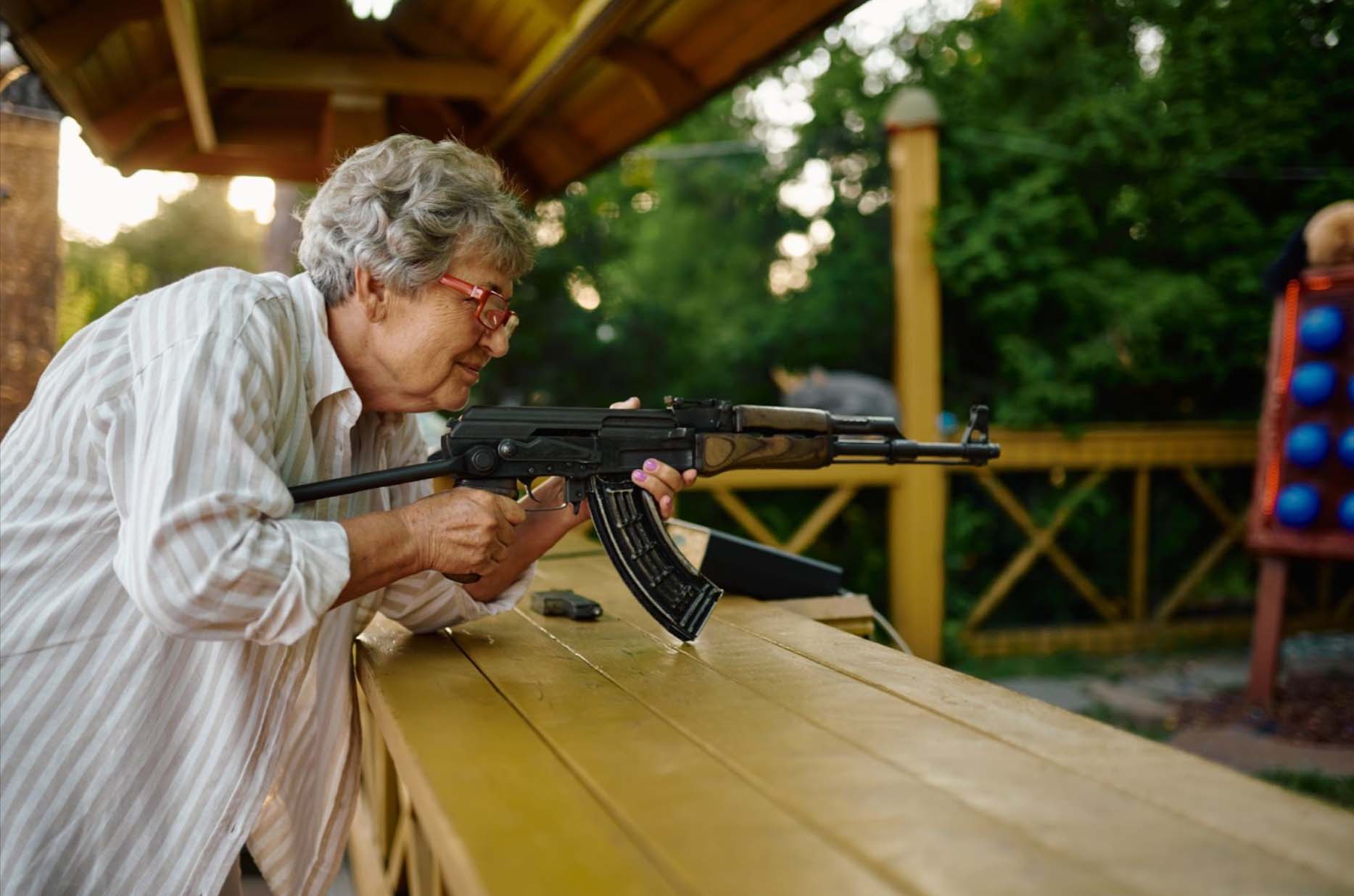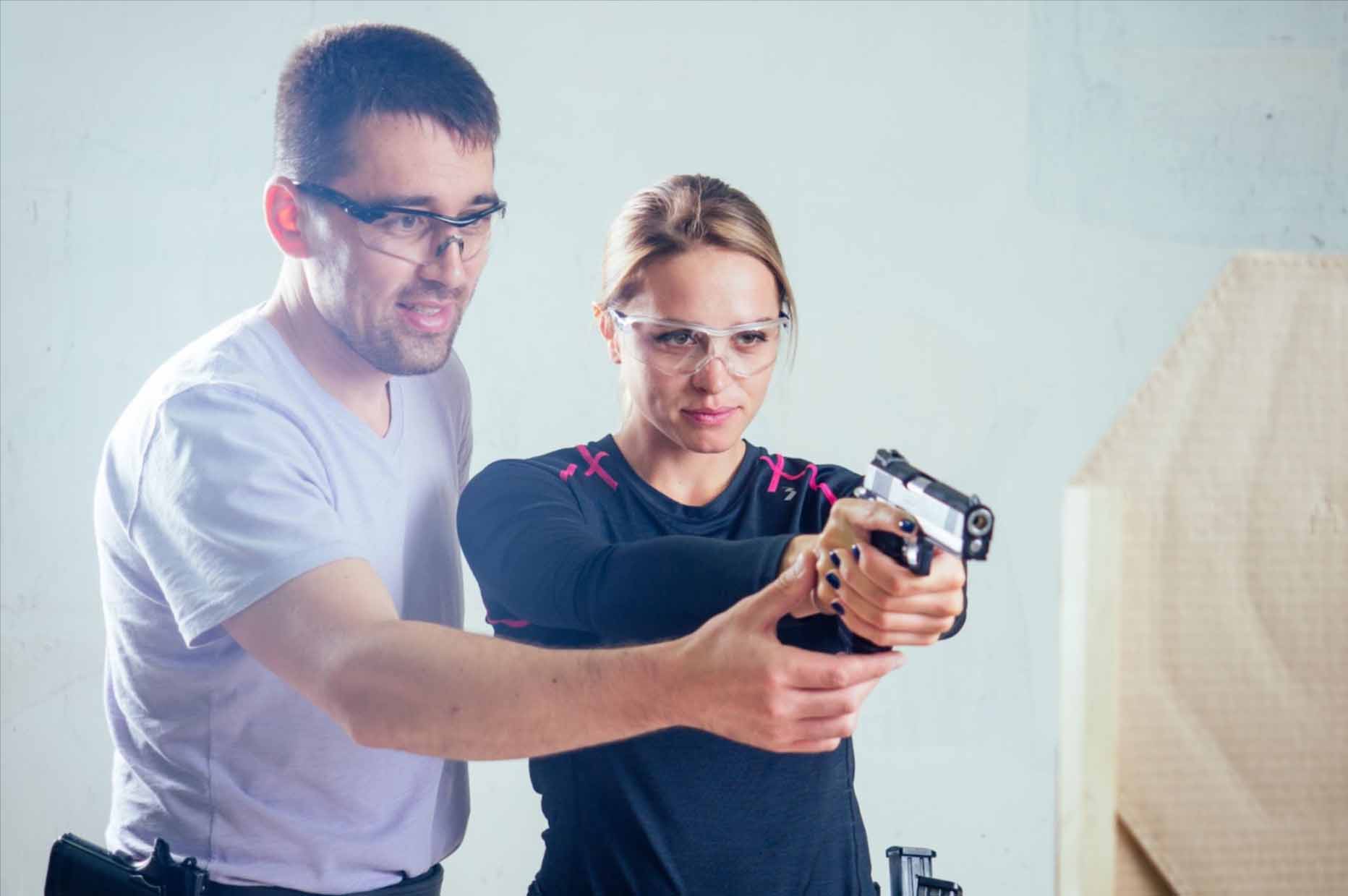Jun 19th 2024
Pros and Cons of Firearms for Home Defense
Pros and Cons of Firearms for Home Defense
The debate around using firearms for home defense is multifaceted, touching on safety, legality, and moral responsibility. While the decision to keep a gun at home for security purposes is personal, understanding its implications is crucial for any gun owner, shooter, or enthusiast. The conversation extends beyond the mere ownership of firearms to encompass the broader responsibilities that come with it, including safety practices, legal considerations, and the psychological readiness to use lethal force if necessary.
Benefits of Firearms for Home Defense
The advantages of utilizing firearms for home defense are anchored in their capacity to provide unparalleled immediate security, acting as a critical layer of protection for homeowners in dire situations.
Deterrent Effect
The presence of a firearm in a household can act as a potent deterrent against potential intruders. The mere possibility that a homeowner might be armed can make criminals think twice before attempting a break-in, potentially reducing the risk of home invasions.
Immediate Protection
In situations where seconds count, having a firearm accessible can provide immediate protection against intruders. Unlike waiting for law enforcement to arrive, a firearm offers a means of self-defense immediately available, giving homeowners a fighting chance to protect themselves and their loved ones.
Legal and Responsible Ownership
For many, the right to own firearms is deeply intertwined with personal freedoms. In jurisdictions where it's legal, owning a gun for home defense is not just a security measure but also an exercise of a lawful right. When done responsibly, it can reinforce the concept of personal responsibility and the importance of upholding the law.
Challenges and Risks of Firearms for Home Defense
Navigating the landscape of firearms for home defense introduces a spectrum of challenges and risks, from the potential for accidents to the legal ramifications of their use.
Risk of Accidents
One of the significant concerns surrounding firearms in the home is the risk of accidental discharge, which can lead to tragic outcomes. That is particularly alarming in households with children or inexperienced adults, where the likelihood of mishandling firearms is higher.
Legal Implications
The use of a firearm in self-defense carries with it a complex web of legal implications. Understanding when and how it's appropriate to use lethal force to protect one's home requires not just familiarity with the laws but also a sober consideration of the potential legal aftermath, including the possibility of facing criminal charges or civil lawsuits.
Psychological Impact
The decision to use a firearm in defense of one's home can have lasting psychological effects, both on the individual wielding the weapon and those around them. Such an event's emotional and mental toll can be profound and long-lasting.

Safe Practices and Training for Home Defense Firearms
Emphasizing safe practices and comprehensive training is pivotal for homeowners who incorporate firearms into their home defense strategy. That ensures readiness and reduces the likelihood of preventable mishaps.
Importance of Regular Training
Proper training is crucial for anyone who keeps a firearm for home defense. Regular practice at the shooting range and familiarity with the weapon increase the likelihood of effective use when it matters most, reducing the chances of accidents or ineffective response to threats.
Safe Storage Solutions
Ensuring firearms are stored safely and securely is essential to prevent unauthorized access and use. It includes using gun safes, locks, and other security measures to keep firearms out of the hands of children and individuals who should not have access to them.
Deciding to keep a firearm for home defense is significant, requiring careful consideration of the benefits and risks involved. For gun owners, shooters, and enthusiasts, it's not just about exercising a right but about responsibly navigating the challenges and implications of firearm ownership. Ultimately, the decision should be informed, balancing the desire for security and the commitment to safety and legality.
What's the Best Firearm for Home Defense?
Choosing the right gun for home defense involves carefully considering several factors, including ease of use, reliability, and the specific needs and circumstances of the household. Here are a few options commonly recommended for home defense, each with its own set of advantages:
Handguns
For those considering firearms for home defense, handguns stand out due to their ease of maneuverability, making them especially suitable for tight spaces within a home. Their small size and light weight allow for quick accessibility, which is crucial in emergencies. Additionally, the availability of extensive training resources makes it feasible for individuals to achieve proficiency in handling handguns. Popular models like Glock 17 or 19 are lauded for their reliability and user-friendliness. At the same time, the Smith & Wesson M&P Shield is appreciated for its ergonomic design, balancing power and manageability effectively.
Shotguns
Shotguns are another favored option for home defense, primarily due to their significant stopping power. This feature is paramount when stopping an intruder efficiently is necessary. Their versatility is another advantage, as they can be loaded with various ammunition types, including less lethal options, catering to different defense needs. Moreover, the sound and presence of a shotgun can act as a powerful deterrent on their own. The Mossberg 500 or 590 series and the Remington 870 are among the top picks for their proven durability and reliability in high-stress situations.
Rifles
Rifles offer an unmatched level of accuracy, particularly beneficial for defense over longer distances, which might be the case in more significant properties. They typically come with higher magazine capacities than handguns and shotguns, and their adaptability allows for customization with accessories like sights and grips to enhance functionality. The AR-15 is widely chosen because of its customizable features, manageable recoil, and high-capacity magazines. Alternatively, the Ruger Mini-14 provides a more traditional appearance while maintaining similar operational capabilities to the AR-15.
Considerations Before Choosing
When selecting a firearm for home defense, it's essential to consider local laws and regulations to ensure compliance. Safety within the household is another critical aspect, necessitating secure storage solutions to prevent unauthorized access, especially by children. Regardless of the type of firearm chosen, proper gun training and regular practice are vital to ensure safe and effective use when it matters most. The ideal firearm for home defense is one that an individual can handle confidently and safely, aligning with their needs and circumstances.

Mental and Emotional Preparation for Using a Gun in Home Defense
The decision to keep a firearm for home defense is not merely practical; it also entails significant mental and emotional considerations. Being mentally and emotionally prepared is just as crucial as being physically prepared when it comes to using a gun for protection. Here's an exploration of the critical aspects of mental and emotional preparation:
Understanding the Weight of the Decision
The first step in preparation is fully understanding the gravity of using a firearm to defend your home. It isn't just about the legal ramifications but also about the permanent consequences of potentially taking a life, even in self-defense. Reflect deeply on your values, beliefs, and the scenarios in which you would be compelled to use lethal force.
Stress Management and Decision Making
In a high-stress situation, your ability to make quick, rational decisions is paramount. Training under stress, through simulation drills or scenario-based exercises, can help prepare your mind to function under pressure. Learning stress management techniques, such as controlled breathing exercises, can also aid in maintaining composure during critical moments.
Psychological Resilience
Building psychological resilience is critical to preparing for and recovering from the emotional aftermath of a defensive gun use incident. That involves developing a strong, positive mindset and coping strategies to deal with potential feelings of fear, guilt, or trauma post-event. Discussions with professionals or support groups who understand the psychological impact of self-defense situations can provide valuable insights and coping mechanisms.
Familiarization With Fear
Fear is a natural response in threatening situations and can significantly impact your ability to respond effectively. Training and mental rehearsal can help you familiarize yourself with fear's physical and psychological sensations, helping you recognize and manage these responses. This familiarity can empower you to act decisively rather than be paralyzed by fear.
Ethical and Moral Considerations
Reflect on the ethical and moral implications of using a gun for home defense. Consider scenarios in which you might have to make split-second decisions and how those align with your moral compass. It's essential to reconcile your actions with your ethical beliefs ahead of time to avoid hesitation in the moment.
Preparedness for Legal and Social Outcomes
Be mentally prepared for the legal scrutiny and social reactions that may follow using a firearm in self-defense. Understanding the legal process and having a plan, including legal representation, can alleviate some of the stress associated with these outcomes. Social support networks, including family, friends, and community groups, can offer emotional support during this time.
Ongoing Education and Self-Reflection
Mental and emotional preparation is continuing. Continual education on self-defense laws, regular training, and self-reflection on personal limits and beliefs are essential. Keeping a journal or diary to document thoughts, feelings, and learnings from training can also aid in this reflective process.
Mental and emotional preparation for using a gun in home defense encompasses various strategies. With these aspects, individuals can better equip themselves to act decisively in the moment and cope with the aftermath of a defensive action.
Learn More About Home Defense Today
Learn more about gun safety, proper gun use, and more on our Gunline Shooting blog today!

